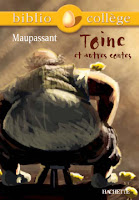Heteroglossia
I think B. is (purposefully?) mixing two ideas. One is the importance of individual language (parole, according to Saussure) and the other is the multiplicity of systems that are brought to bear on any linguistic production.
Perhaps those two dimension are inevitably blended in language production, but conceptually they are separate.
Parole
Parole is the enunciative counterpart of langue (a bit of heteroglossia on my part: a translation from the French énonciation). The crucial number in enunciation is three. The speaker represents him or herself in parole (features that mark my enunciations: spelling errors and Gallicisms!), as well as the listener (for example, baby talk would indicate that the speaker sees the listener as immature), and the world (the “it”, the assertive content of the words: is raining or not). I — YOU — IT. There is a dizzying spiral of feedback between these three enunciative actors, to the point that what is said becomes a blend of three voices into one voice. Here is a taste of the spiral:
I say “it’s raining”. You know it is raining, and that anyone with any brains would know that. You think I am being condescending, even provocative, because that statement comes after a discussion of how you don’t like for me to point out the obvious. That past world event (our conversation) changes my “it’s raining” just as surely as the actual weather; if there had been no rain for 40 days, “It’s raining” is cathartic, joyous, a completely different enunciation. Enunciation is a choral event: I, YOU, and IT speak at the same time and their voices resonate.
There are figures of enunciation that make that choral dimension conspicuous. “It’s a nice day” is ironic when in fact it is a lousy day full of rain…. but only if YOU put two and two together. YOU find the sign of irony in the contrast between my words and the world, even though words rarely reflect accurately the world. Or perhaps it would be more accurate to say all language is ironic because the voices of I, YOU, and IT are never quite attuned. That is the point of a chorus: the voices must be different in order to resonate.
Why are jokes funny? Heteroglossia is part of the answer. Laughter is the effect of a chorus who’s voices are dissonant. The picture of the sheepdog is a voice that contradicts the caption. We are back to our spiral of enunciations. The photographer has a voice: background and cropping. The dog is at the center of the sheep. There is an abstraction effect: the animals contrast with the snow, both the fur (gray) and the muzzle (black). They are all fighting snow. So the dog is one among many.
I don’t think the photograph would be particularly comical without the caption. The caption does two things. First, it situates the communication in a serious genre; a spy story, for example. It contrasts now human/animal, the sophistication and cleverness of Bond with the friendly naivety of a dog unable to get out of the snow. Second, it underlines the natural resemblance between sheep and dog.
Why is it funny? It is a particular kind of heteroglossia that Freud calls naive comic (see Wit). Comical because the reader is able to take the unsophisticated position of the speaker (the dog) and then return to the sophisticated position of the observer. According to Freud, we enjoy that momentary visit to childhood, where dogs can quite seriously be secret agents. There is no joke without both enunciations: the readers representing to themselves all the complex effort at plausibility that are part of spy stories vs the simple scenarios of children, where a piece of wood can be a spaceship. It is this “saying together” of sophisticated and unsophisticated voices that makes us laugh in the case of naive comic.
Who you gonna to call?
The second dimension of heteroglossia is found in the intersection not of enunciative actors, but of different languages. Photography has its own language, as does painting and sculpture. The meaning of a given utterance come from many sources, each with their own systematicity. Counting is part of mathematical language, but there is no rupture between ordinary language and mathematics, even though we know that at some point mathematical language will become incomprehensible to the non mathematician.
Cultural references are of the same nature. Bakhtin talks at length about how society is stratified by jargons and above all by encyclopedic references that are enshrined in expressions. “Who you gonna call” brings with it a reference that a generation of anglophones will know but others will not.
Bakhtin: yes and no
Where Bakhtin leaves me “songeur” is his rejection of the abstract in favor of the “living language”. Saussure’s great contribution was to see language as a system. True, he recognized that this was a reduction, but it was the price to pay to understand language more thoroughly. He did postulate a science of the life of signs in society — the semiology that inspired Barthes–, but he would no doubt think that a science of parole is impossible. Aristotle says: there is no science of the individual. And, in any case, if there is a science of parole, it will have to be built on top of a science of langue.




